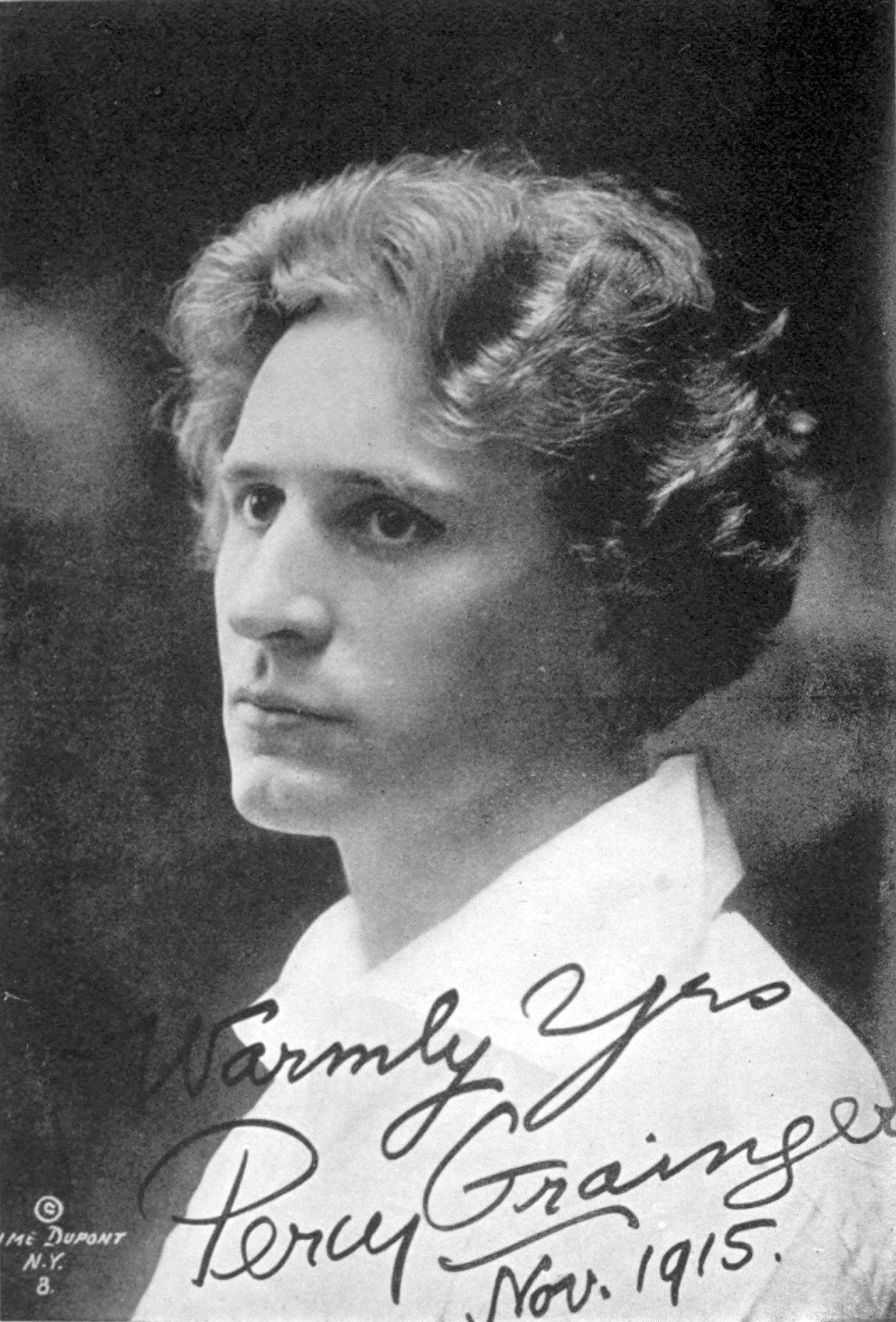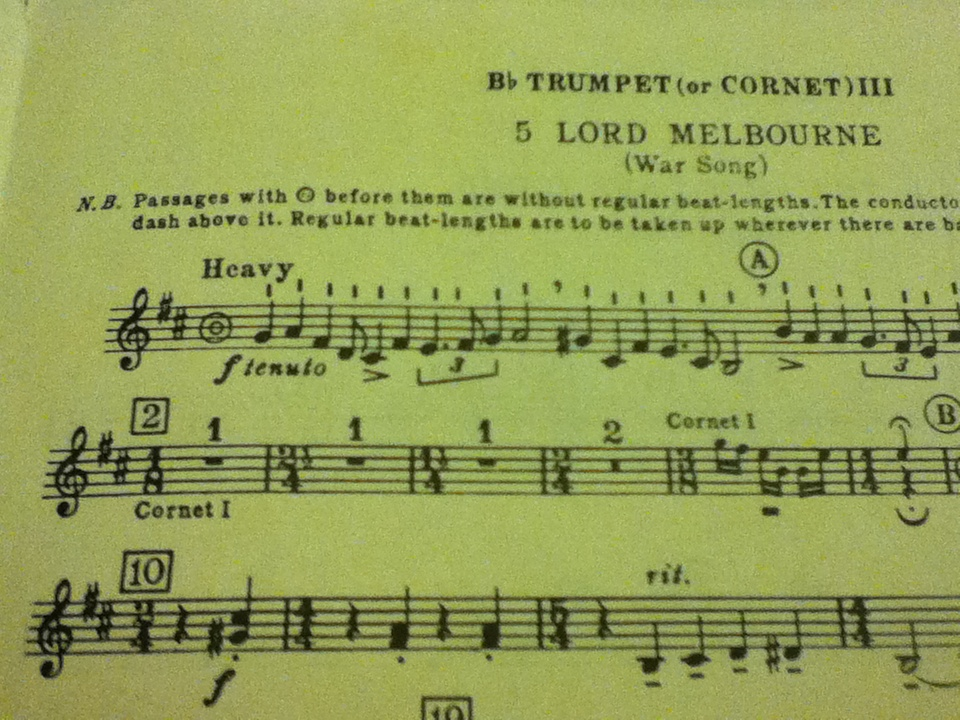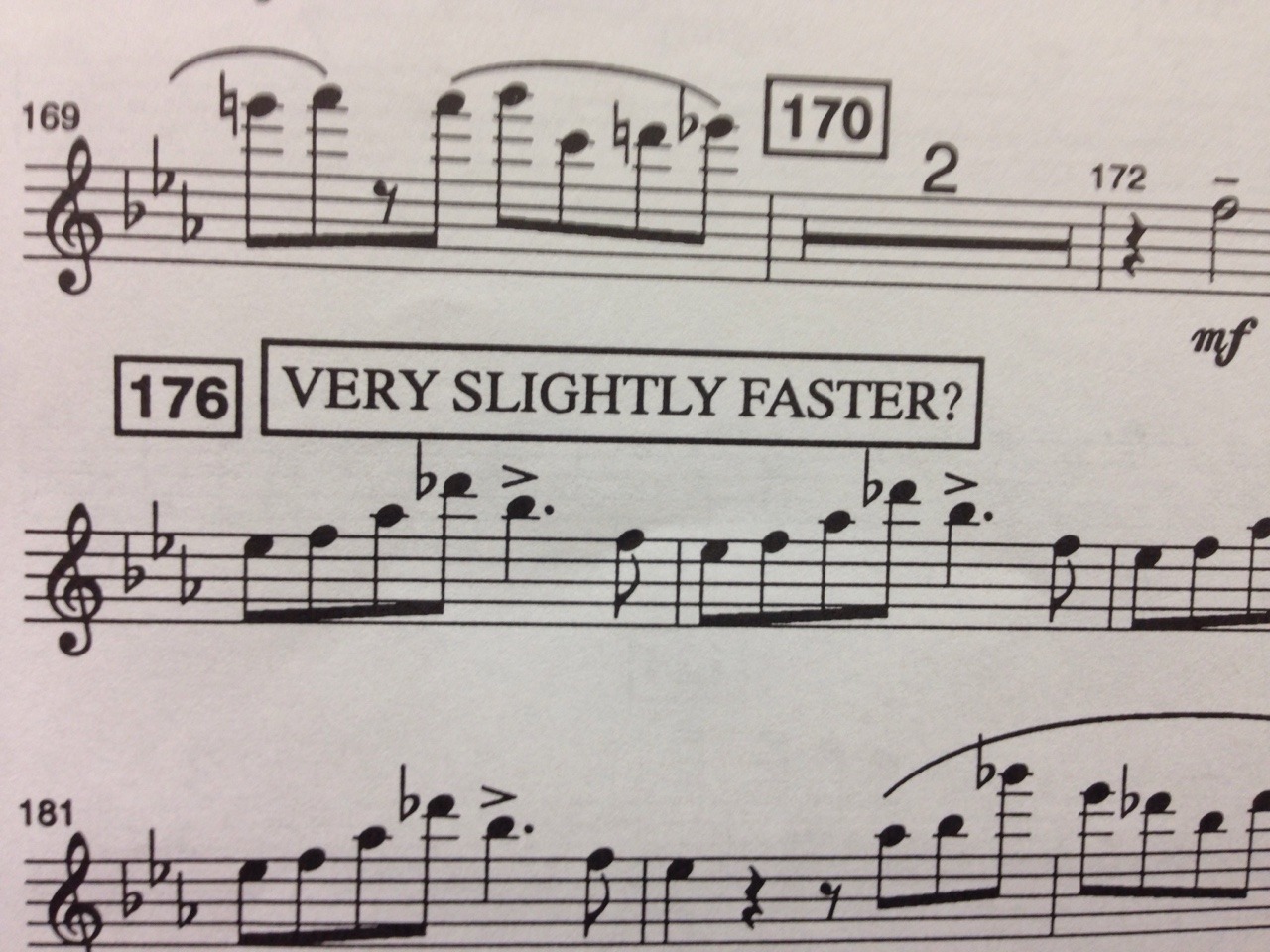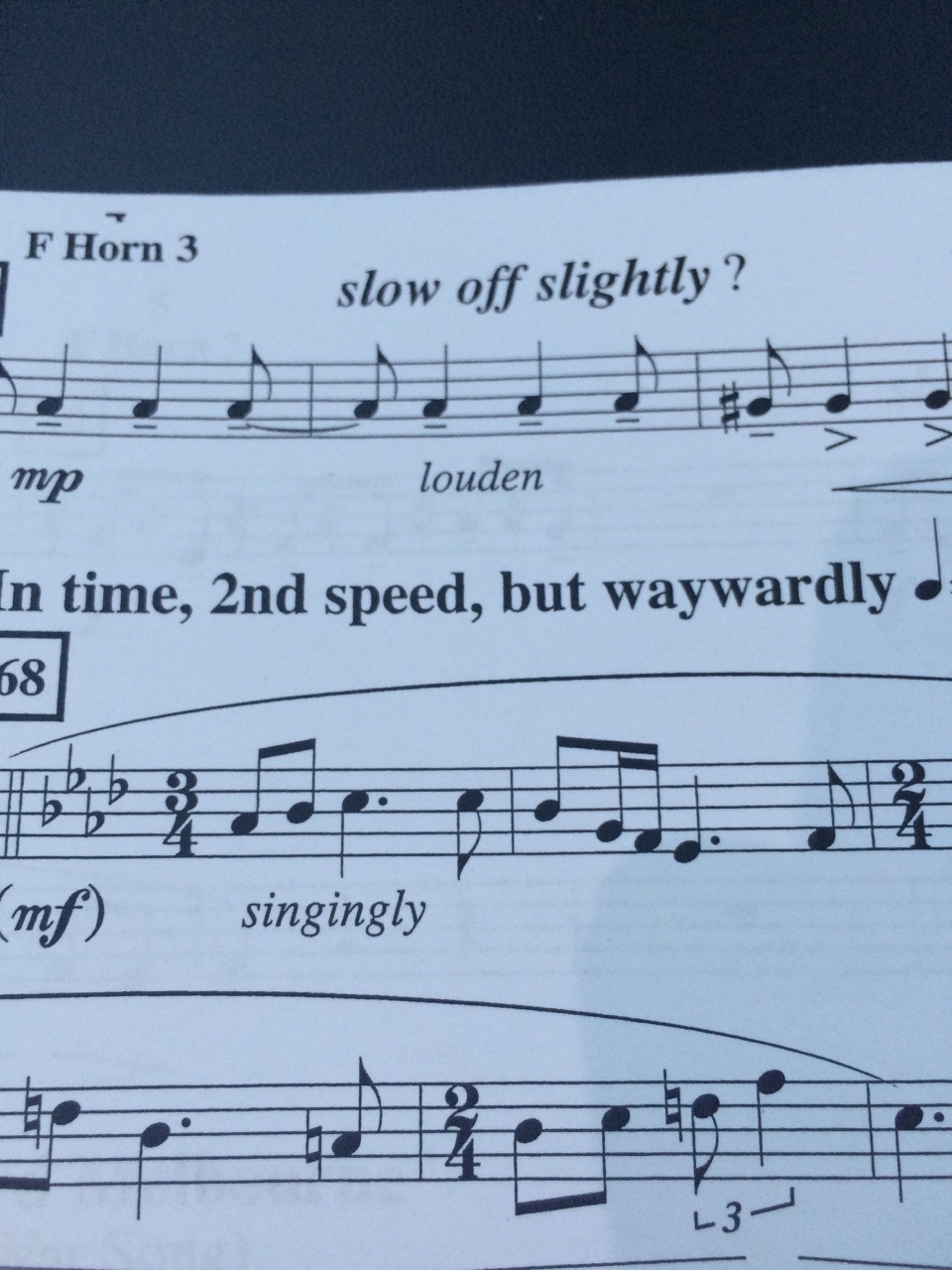I've written about Grainger before in this space, but it turns out that yesterday was his birthday, so I'm going to honor him again right here! Grainger was a very creative, and even innovative composer; he was almost exactly a contemporary of Igor Stravinsky, and there are moments in his music which are every bit as "wild" as the great Russian modernist. Grainger's music also looks back, though, at the same time it looks forward, because he was very deeply committed to English folk music. Thus, many of his most famous works are settings of English folk songs that he transcribed in his wanderings through England. He was also quite the wanderer: Born in Australia, educated at a conservatory in Germany, lived in England until 1914, and then moved to the United States where he lived out the rest of his long life. Grainger's curiosity fills his music with a constant sense of discovery. You listen to him and even in the most "normal" of his works, you still never quite know where he's going with things.
Here are a few pictures of Grainger's scores and parts. Note his free use of time signatures, and note even more his instructions. Grainger didn't mess around with the traditional Italian words like "crescendo" or "fortissimo" or "andante" or "non troppo".
Here is Lincolnshire Posy. This work has never stopped sounding fresh in my ears. I think it's because Grainger didn't try to work the folk tunes he learned from regular people into standard time signatures and rhythms; he learned the songs he collected from people in all walks of life, and I'm sure that more than a few of them couldn't carry a tune or a rhythm to save their life. Nevertheless, he strove to preserve that experience of folk song, so nothing sounds refined or fixed. This is the character of what you might hear when someone says, "Hey, there's this song I heard and it kinda goes like this" and they start singing without any heed for actual rhythm or, sometimes, even the tune.
Here's some more Grainger. Just an amazing composer.






1 comment:
Did I mention that this is my favorite of your regular features?
Post a Comment